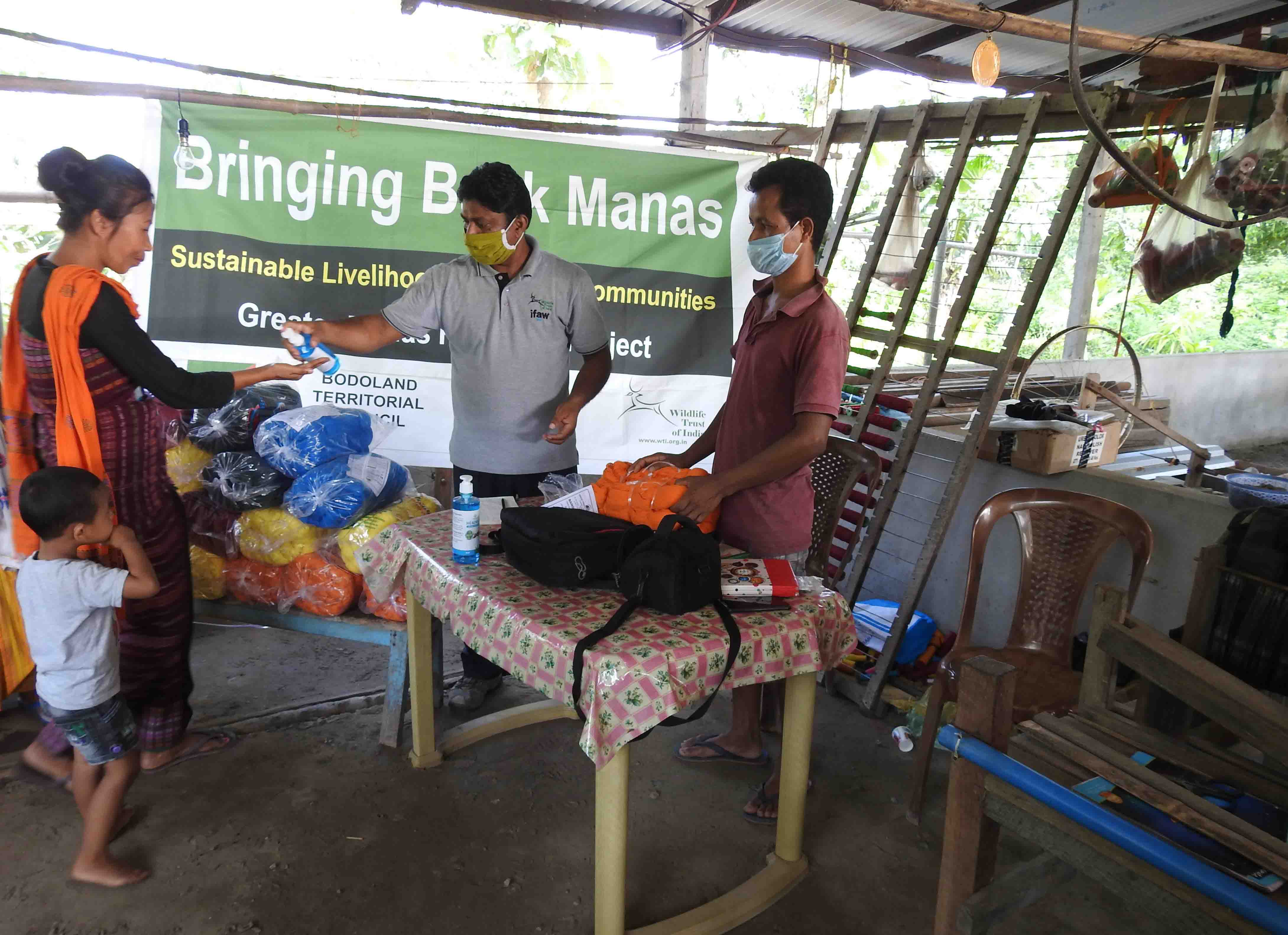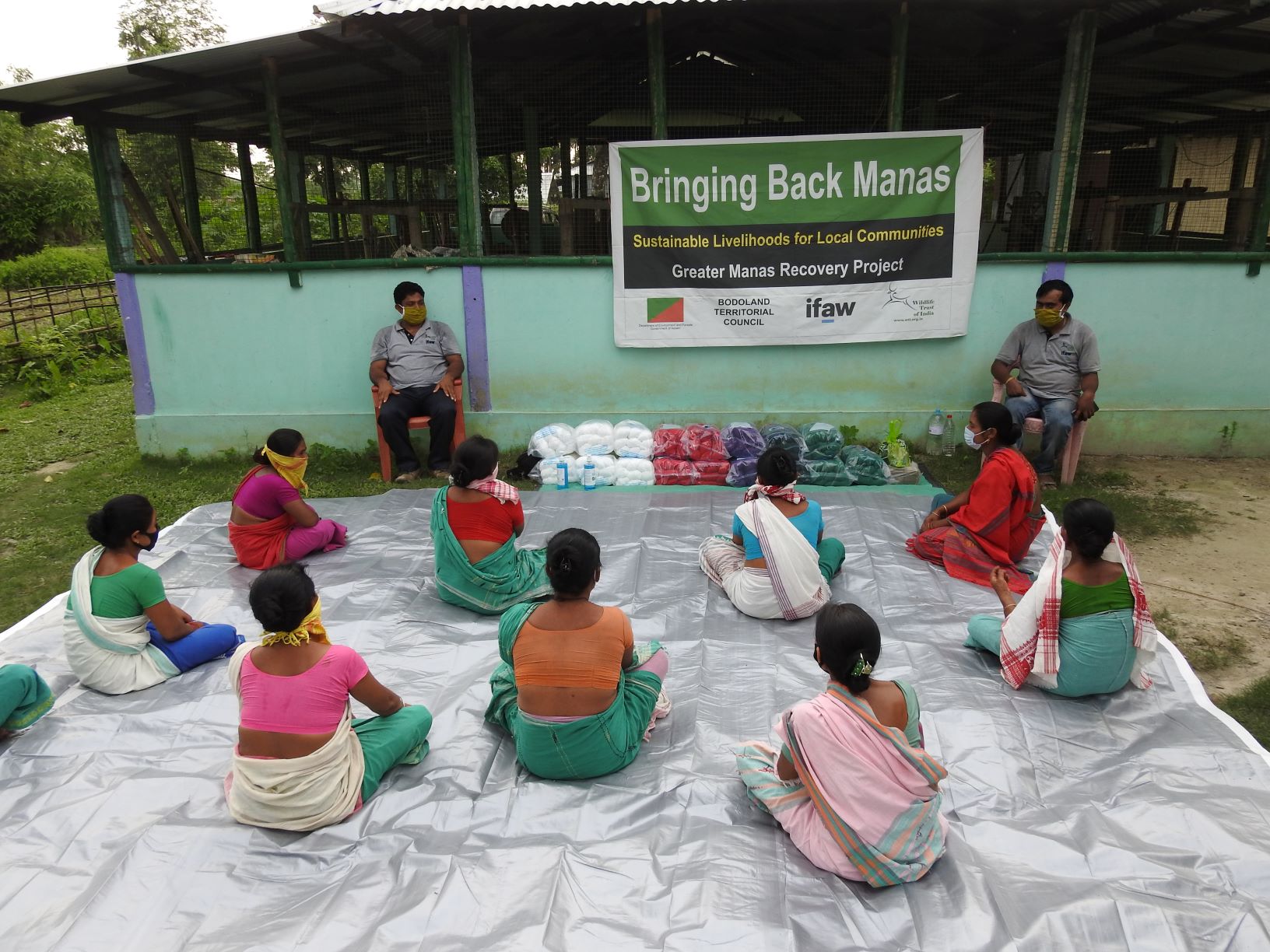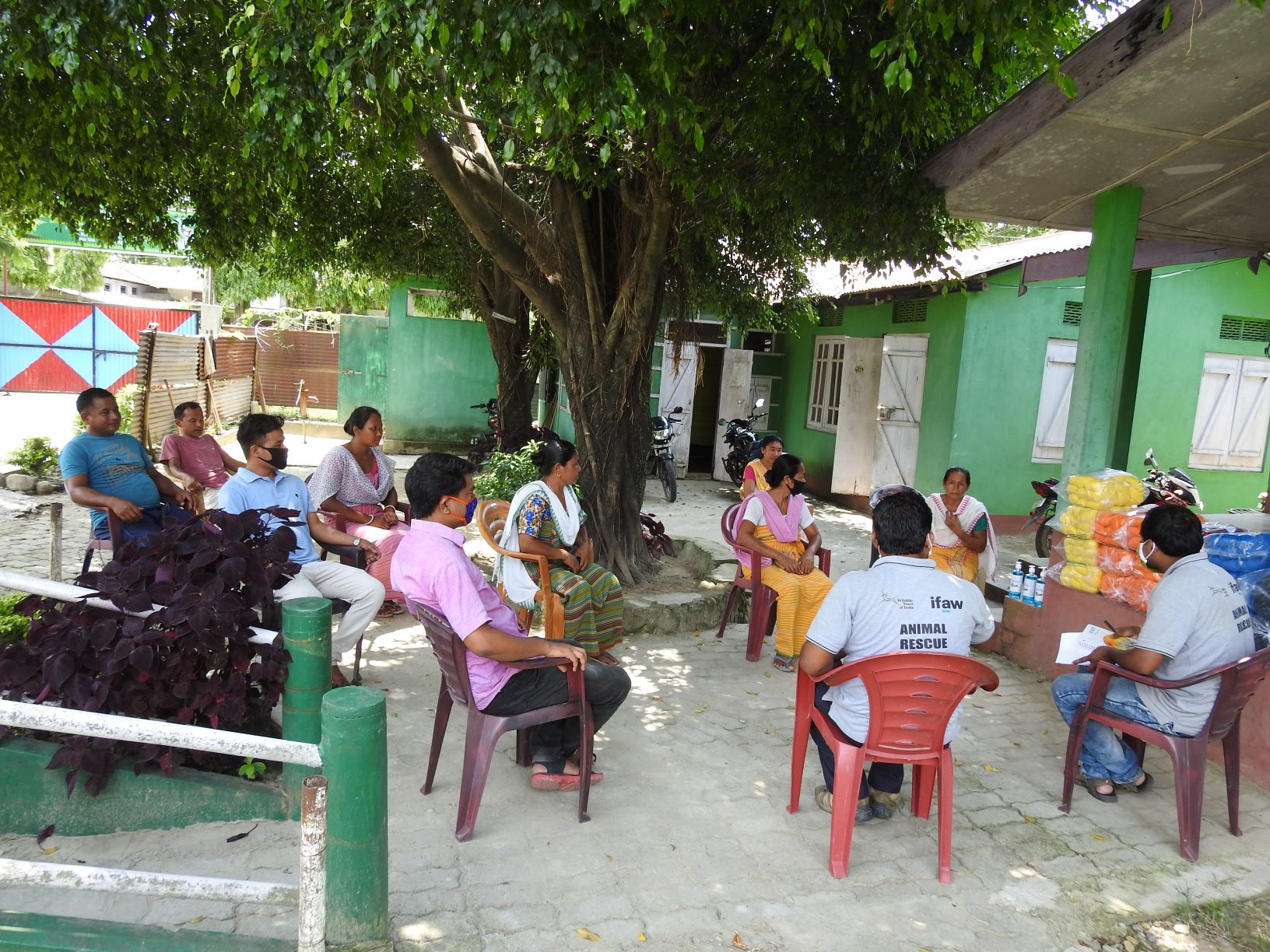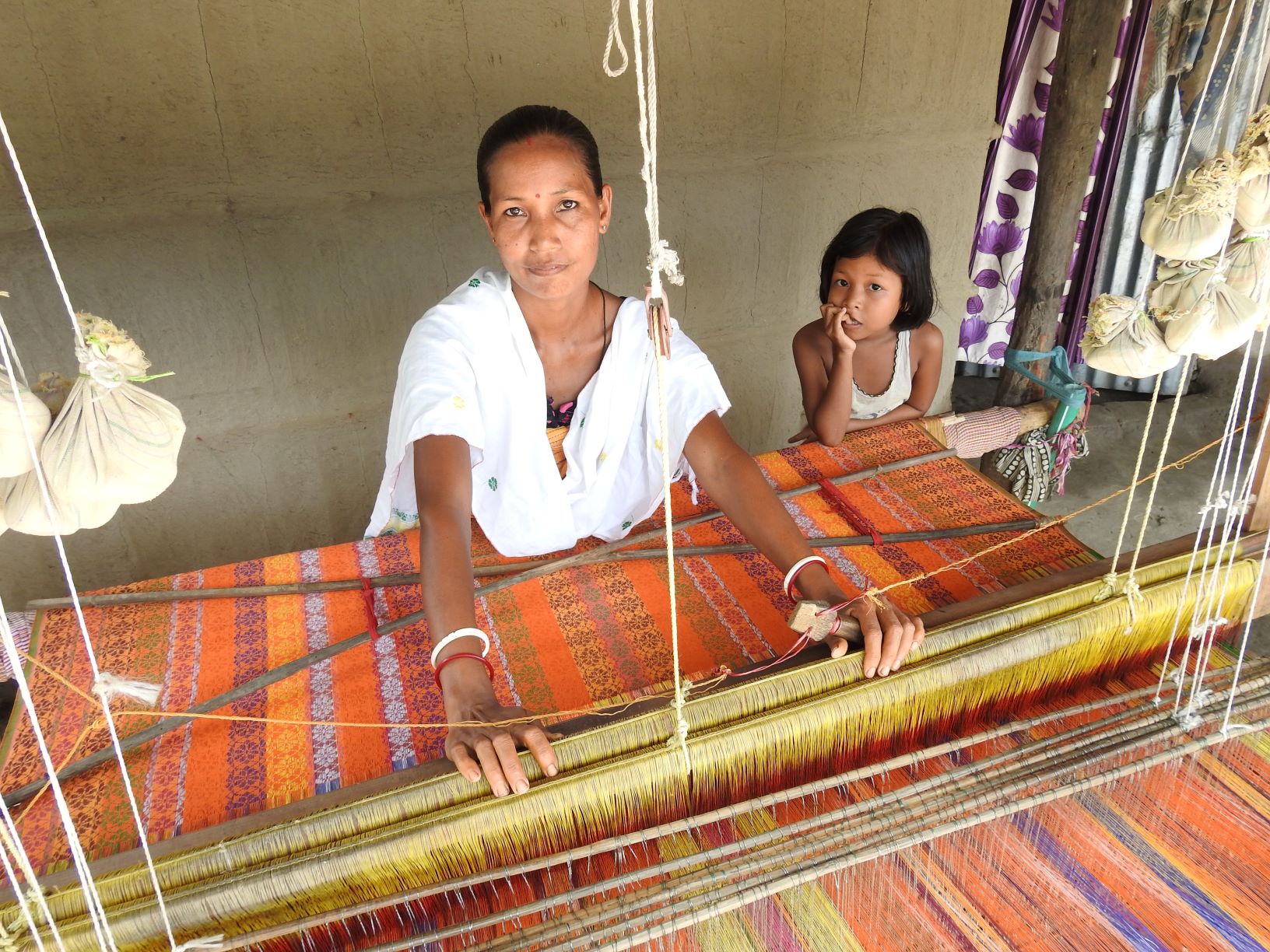Manas National Park, June 18, 2020:
While COVID-19 induced lockdown has adversely affected livelihoods across the country, a promising story has emerged from communities living on the fringes of Manas National Park. Falling back on the tradition of weaving, Bodo women trained by WTI and its partner IFAW have managed to earn a decent amount while working from home.
Two hundred and fifty families were encouraged to take up the traditional weaving practices in their homes with WTI-IFAW providing financial incentives and assistance even during the lockdown. This has enabled an average monthly income of Rs 10,000 per weaver that was sustained through the lockdown period.





A training programme initiated in 2014 kickstarted the potential for weaving as an additional source of livelihood when communities used to weave for self consumption. The following years saw the establishment of five community weaving centres with the support of the Government of Assam and BTC around Manas Tiger Reserve. Udangshri and Manas Jeuti Weaving Centres set up in 2018 with support from the Bodoland Territorial Council (BTC) are equipped with jacquard machines and a warping drum to give the finishing touches to their creations. Traditional dokhonas, sador-mekhelas and gamosas woven by these women gained much-needed market value when produced with this equipment.
“Weaving is a tradition and the Bodo women feel a sense of pride when they wear a handwoven dress. This activity has helped reduce their dependency on forest produce and the risk to their lives in man-animal encounters and has given dignity of work to the weavers” stated Sanatan Deka, WTI’s social scientist from the Greater Manas Recovery Project.
WTI has reached over 2500 households since the last decade and worked with these families to reduce their dependence on forest produce, by providing alternative cookstoves and livelihood support that helps conserve the forest resources of Manas National Park.
“From the last week of March to the end of May 2020 about 20 incidents were recorded of more than 600 people involved in various illegal activities like poaching, hunting of wild animals for bushmeat, tree felling and habitat destruction for human settlement in the landscape”, shared Sanatan Deka. “However, not a single household that WTI-IFAW worked with was involved in any illegal activities during this lockdown period,” he added.
Wildlife Trust of India’s approach towards wildlife conservation has remained holistic in all its long term thrust areas. The Greater Manas landscape is one such region where WTI-IFAW has been working since 2004 to bring back the lost glory of Manas NP. Communities are key to long-term conservation, hence, sensitising communities to take pride in their natural heritage providing livelihood enhancement, capacity building and legal support to the forest department and leveraging policy to increase the protected area of Manas are some key drivers to maintain the integrity of this magnificent landscape. Read in detail about the project here.